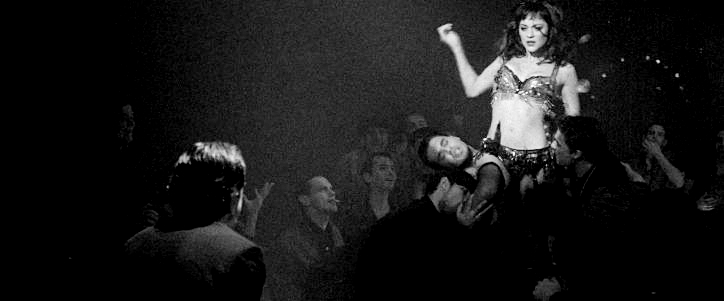About midway through “Nine,” Stephanie, the Vogue reporter played by the ravishing Kate Hudson, informs us that “style is the new content” for her readers. Applying that quotation to Rob Marshall’s latest film adaptation of a Tony Award-winning musical, the movie is a flashy work of pure artistry that dazzles the eye. While style is a crucial part of “Nine,” the movie will be remembered for its phenomenal cast who turn in mostly solid performances but are thwarted by inept direction.
The movie’s story is indirectly based on the life of Italian film director Frederico Fellini, yet it seems to now have some striking parallels to the recent downfall of Tiger Woods. Guido Contini (Daniel Day-Lewis) is a beloved director, yet his last two films have been somewhat underwhelming. He hopes to steer himself back on the path to success with a new film, “Italia.” However, he is in such mental anguish because he cannot commit himself to anything or anyone. Guido has a gorgeous wife, Luisa (Marion Cotillard) at home whom he constantly neglects in favor of the temptress Carla (Penelope Cruz).
And the problems with women don’t end there. He has to deal with his indignantly querulous muse (Nicole Kidman), an American reporter who is quite the flirt (Hudson), a sassy costume designer and old friend who can sense the torment (Judi Dench), and his mother (Sophia Loren) whose legacy still haunts him. As Guido tries to find inspiration through these women, bouncing between past and present, he only finds himself more conflicted and lost. One major success of “Nine” is using cinematic devices like choppy editing and constant changes between black and white and color to show this torture. Daniel Day-Lewis is plenty capable of showing it as well, although his voice lacks some of the vocal power that the Broadway actors had in this part.

Where “Nine” fails to excite is the area which should have been a slam dunk: the musical numbers. They are excellently choreographed and well sung, yet they don’t recreate the thrill of the stage. I believe the fault lies with Marshall, who insists on interposing the music with the dialogue. This results in many awkward arrangements, and it’s like being delivered a bouquet of flowers with a few dead roses mixed in with the blooming ones. If he was looking to mix them to save some time, he should have axed either of two god-awful numbers from Sophia Loren or Nicole Kidman.
But time should have been the least of his concerns. Marshall slashed the music of “Nine,” reducing every character except Guido and Luisa to having only one number. We can learn a lot about a character through these songs, and by taking them out, he has robbed himself of a chance to fully realize all the characters.
The only numbers Marshall doesn’t seem to give this graceless treatment to belong to Marion Cotillard, who seizes the opportunity to captivate. Although you won’t walk out of the theater humming the tunes she belts, they are the most emotionally compelling. On the other hand, Penelope Cruz’s titillating number “A Call from the Vatican” brings down the house. She is a sensual sensation, throwing it all out there to be the beautiful object of lust. And it works. Cruz is absolutely mesmerizing from the first instant we see her traipsing around on some pink fabric. Among the other women, Dench is solid as always, and the brief appearances by Hudson and Fergie provide some of the movie’s most exhilarating moments.
Nicole Kidman’s character, in contrast, only makes sense when she is petulantly begging for Guido’s non-existent script. Her number, “Unusual Way,” is quite unusual indeed. Kidman spends it aimlessly wandering around the streets without making the slightest connection to the lyrics. By the time she appears, we are already weary from witnessing all of Guido’s suffering that she only serves to further confound matters. Loren, I believe, is merely a victim of bad writing and an abysmal song.
Although I have been unsparingly censorious of Marshall, I do understand what he was trying to do with “Nine.” The whole concept is to pay homage to Frederico Fellini and Italian cinema. It was hard to do on stage, but Marshall uses every weapon in his arsenal on screen to make sure that it is glorified. He even added the character Stephanie and the song “Cinema Italiano” (the movie’s most catchy jingle) to serve as a hymn to Fellini. However, whatever sorcery that “8 1/2″ and Italian cinema may possess is lost in “Nine,” and Marshall’s movie is decidedly disjointed and inaccessible. B / 

